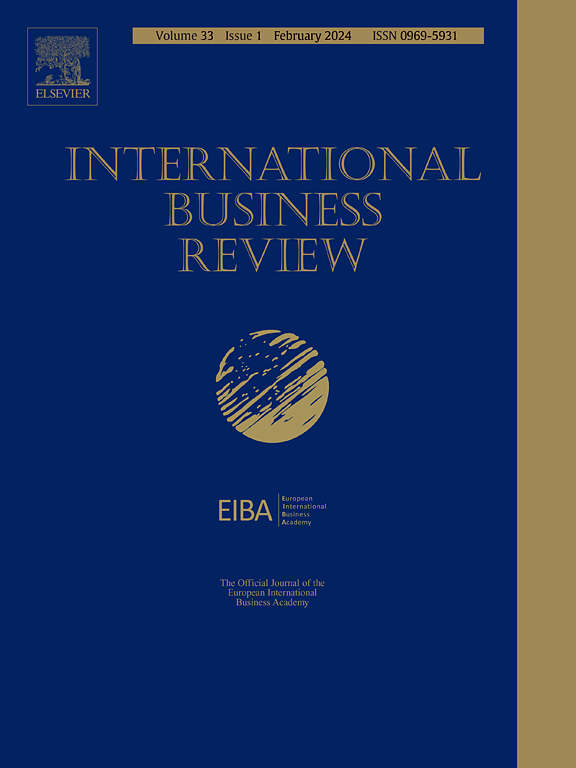Breaking trust? International partnership exit and learning about opportunities
IF 6.1
1区 管理学
Q1 BUSINESS
引用次数: 0
Abstract
This study investigates how exiting key international partnerships affects trust and subsequent learning about opportunities in international markets. We identify three distinct exit approaches using qualitative data from small and medium-sized enterprises (SMEs). The first approach focuses on contractual exit provisions, which destroy affective trust but maintain cognitive trust as a basis for ongoing learning about opportunities in foreign markets. In the second approach, SMEs exit partnerships by claiming control, thus eroding affective and cognitive trust, turning former partners into adversaries and limiting the ability to learn from new relationships. The third approach, a consensual exit, maintains affective trust, offering future opportunities for market learning. This study advances the understanding of the role of trust in SME internationalisation by identifying the effects of exit approaches on post-exit opportunities through the preservation of residual trust. Crucially, the study reveals that learning about opportunities in foreign markets can endure beyond partnership exit.
打破信任?国际合作退出和学习机会
本研究探讨退出主要国际合作伙伴关系如何影响信任以及随后在国际市场上对机会的了解。我们利用中小企业(SMEs)的定性数据确定了三种不同的退出方式。第一种方法侧重于合同退出条款,这破坏了情感信任,但保持了认知信任,作为持续了解国外市场机会的基础。在第二种方法中,中小企业通过要求控制来退出合作伙伴关系,从而侵蚀情感和认知信任,将前合作伙伴变成对手,并限制从新关系中学习的能力。第三种方法是双方同意退出,它维持了情感信任,为未来的市场学习提供了机会。本研究通过确定通过保留剩余信任的退出方式对退出后机会的影响,促进了对信任在中小企业国际化中的作用的理解。至关重要的是,该研究表明,了解国外市场的机会可以持续到合作关系退出之后。
本文章由计算机程序翻译,如有差异,请以英文原文为准。
求助全文
约1分钟内获得全文
求助全文
来源期刊

International Business Review
BUSINESS-
CiteScore
14.10
自引率
6.90%
发文量
95
审稿时长
62 days
期刊介绍:
The International Business Review (IBR) stands as a premier international journal within the realm of international business and proudly serves as the official publication of the European International Business Academy (EIBA). This esteemed journal publishes original and insightful papers addressing the theory and practice of international business, encompassing a broad spectrum of topics such as firms' internationalization strategies, cross-border management of operations, and comparative studies of business environments across different countries. In essence, IBR is dedicated to disseminating research that informs the international operations of firms, whether they are SMEs or large MNEs, and guides the actions of policymakers in both home and host countries. The journal warmly welcomes conceptual papers, empirical studies, and review articles, fostering contributions from various disciplines including strategy, finance, management, marketing, economics, HRM, and organizational studies. IBR embraces methodological diversity, with equal openness to papers utilizing quantitative, qualitative, or mixed-method approaches.
 求助内容:
求助内容: 应助结果提醒方式:
应助结果提醒方式:


